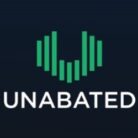Betting software is by no means a new invention, but the mainstream appeal demanding these sports betting aides is something that has only come to surface in recent years. For sports bettors right now, there are plenty of betting software and tools providing these aides, and each one uses its own proprietary algorithms and AI powered formula to optimize your betting picks. They aren’t simply plug and play models that generate hot betting picks for you to tail.
There is betting software for all kinds of strategies, from pinpointing hot arbitrage betting opportunities to value props finding in your NBA picks. On that note, it is important to also factor in the efficiency of one software model over another, depending on the sport you want to use it in. Some have finer tweaks for MLB bettors, with an abundance of analysis surrounding key hitters and the pitchers, whereas others are better suited for NBA or NFL fans – and picking the right software pivots on these crucial details.
Top Betting Software Sites
Types of Software and What They Do
All betting software is designed to give you an edge in your betting, and each has its associated betting strategies or way in which it is intended to be used. Understanding the various types of software is the first step to getting the right aide.
The majority of the software out there looks for value bets, and they do this either by: Aggregating betting odds, or, assessing statistical information. Both methods have their strengths and weaknesses, and the software can vary heavily based on the algorithmic formula or AI proprietary models used.
Beyond those two, there is software to help you follow specific betting strategies, like making it easier to do arbitrage betting or convert bonuses. And there are software that assess parlays or DFS lineups, going into as much detail as you need.
Odds Aggregators and Line Analysis
Analyzing the odds is a numbers game, and you are using the data provided by the sportsbooks to find good value. The software uses these odds as the base through which it will calculate the winning probabilities, and thus comb out the better opportunities from the overpriced wagers.
The great perks of this method is that these software often cover loads of sports, so you can find equally good value on your MLB baseball bets as, say, horse racing or even eSports wagers. This is because the data relies on betting odds, and the US has no shortage of quality sites providing competitive odds.
If the software also has historical line movements, it can then open the possibility to track these movements and set up alerts. In an ideal scenario, it means you can set up automated notifications to catch the odds when the price is best.
Having more books to compare equals a more accurate result, but it can also backfire. If your software has odds from an unreliable offshore book that has a larger discrepancy or valuation of the price, this can tip the balance, and distort the calculations. Another downside is that you generally need to be signed up at more books to get the most of these odds aggregators.
Pros
- Works over multiple sports (including niche)
- You get +EV, Hit %, and Juice estimations
- Check for where the odds are best priced
- With CLV analysis & alerts, place your bet when the price is highest
Cons
- Often, needs you to sign up at multiple books
- May list offshore or unreliable books
- The calculations can be “distorted”
Research Analysis and Statistical Metrics
The other main software is the research tool, which may have some basic odds comparison or checker features, but it mainly revolves around statistics. This approach doesn’t rely on odds, it is more about looking at the statistics and coming up with insights independently of what the sportsbooks think.
Instead of making bets based on the sportsbook odds, you are backing your picks with data, and looking for key opportunities. Some stats-driven software also has odds evaluations, taking the odds and running the implied probabilities against the stats-back projections.
The good news is that this means you can use more of your sports knowledge to back those picks, and do research quicker, and more efficiently. You don’t need to sign up at 5+ sportsbooks, you can even use this approach with 1 sportsbook account.
But the bad news is that because it is not built on the market odds, it is pretty restrictive to 1 sport at a time. Your software may have excellent NBA data, but it may fall short for soccer projections or NFL. Some stats-driven softwares don’t even list soccer, and skip out entirely on UFC, NASCAR, and other of the more niched sports.
Pros
- You don’t need many betting accounts
- It doesn’t follow the sportsbook odds, but the real historic stats
- Better suited to sports fans who do research
- The tools tend to be cheaper than odds aggregators
Cons
- Sports coverage may be limited
- Each sport must be researched independently
- You won’t always get the best odds
Other Types of Betting Software
Beyond those two, there are software that dive deeper and cater to more specific betting strategies or purposes.
Parlay building software can use either stats or odds to power projections and hit rates. These betting software work on optimizing your parlay picks, finding the weak link in your parlays or providing alternatives that gel better into your parlays.
Arbitrage software are extensions of odds aggregators, and can use the data accumulated to work on key hedged betting wagers. They can identify discrepancies in the market that are large enough to pull off arbitrage bets, and show you the potential gains.
On the subject of arbitrage betting, some software goes into other forms of hedged betting, such as middles or back/lay bets. The former uses betting lines, with contrasting Over and Under wagers that have a small sweet spot – called the middle. If you hit the middle, you win both bets, and therefore they can be a lot more lucrative than simple arbitrage bets.
Back and lay bets are generally used in horse race betting software, where the odds are lengthy and these software can use Each Way or Place bets to cover more ground.
There are also bonus converters, or matched betting software, that focus on maxing out sportsbook offers. They give you back and lay suggestions for the matched bets, and some of these software sites also have “bonus finder” software, to help you get a steady inflow of bonus bets.
Fantasy Optimizers can run on stats based software, or on “odds software”. The odds-based fantasy optimizers will crunch the projected lines offered at different DFS apps and sites, potentially even aggregating the data against the odds provided at sportsbooks. The stats based ones look for potential based on the historical player performance data and team stats.
Hybrid Betting Software
Hybrid software sites provide 2 or more different software, so that you can capitalize on more features and hone your betting strategy further. You may get a hybrid software that has odds aggregators, arbitrage wagers and matched betting bonus finders. Or, a stats-driven betting aide, with parlay optimizers and DFS Pick’Em suggestions.
Having more is always welcome, but also consider this. Having more software rolled into one betting tool can mean a more pricey subscription, or multiple tiered subscriptions, with the more advanced features reserved for the higher tiers. So while hybrid solutions are extremely useful, you have to be careful to only pay what you need, and don’t sign up for, say, matched betting – if you aren’t going to use it.
Tips When Looking for Software
You should first identify how the software works, and the main areas it focuses on. A good odds aggregator will not stop at just 5 sportsbooks and provide you with an odds checker. It should have more sportsbooks, and relevant ones – not offshore or obscure international betting platforms only.
A statistics powered software’s worth can be measured by the depth of statistics it incorporates into the calculations. It should also be easy to use these and make your own research on the tool. Percentages and charts are useful, so long as you can gauge the information that they use to make these assessments.
When we review and look for new betting software, we always check these factors, and then test the efficiency of the software, giving you little insights into the additional features or exclusive tools the software provides.
Tricks to Testing Software
As mentioned earlier, software can be pricey, especially those hybrid models that throw in arbitrage bets, bonus finders, closing line value, and everything else. But the majority of these software have some kind of trial or discounted first month for newcomers. You won’t need to throw $100 or more into a software just to try it out.
So make use of the trials and discounts we offer at OddsPlays, and when you get your 5-day, week-long, or even trial month run, make sure you max it out. Place enough bets and test the software thoroughly to gain an idea of how it works, and whether it works for you. Be patient with any variance that may occur during your trial, and when you have enough information, you can decide whether to sign up on a more permanent basis or not.
Factor in the Sports You Bet On
This criteria is perhaps more poised at the statistical analysis betting aides, but it is equally as important at odds aggregators. Because the coverage and analytics may not be equally distributed among the various sports. We have found software that is far more efficient at finding NBA props than NFL props, or ones that are better suited to MLB bettors than any other sport.
It is all about working out whether the software merely adds your chosen sport to its portfolio, or goes all out and does a more comprehensive assessment.
Check All Software Sites
You may have heard of a new software site and want to check it out, or just want a few alternatives before starting your test run on any software. No problem. Below, you can find our full portfolio of betting software reviews, and learn more about the tools that provide these betting softwares.





